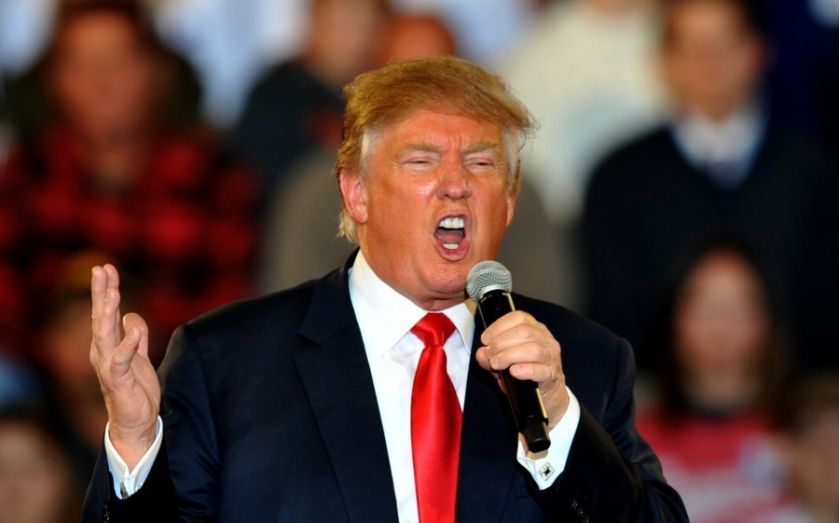Trump’s a chump: Why Americans won’t let him anywhere near the presidency

After the events of the past week, everybody seems to be working himself or herself into a right lather over Donald Trump, fearing he could be the next US President. According to the bookies, Trump is at 9/4 to win the Republican nomination and 6/1 to go on and win the presidency. President Trump and Prime Minister Corbyn. The first photo opportunity at Camp David is going to be a little awkward. There goes the Special Relationship!
So what is the likelihood of Donald Trump becoming the 45th President of the United States? I don’t think it’s going to happen, and here’s why.
First, the Republican Party wants to win the election and, in order to do that, it almost certainly needs to win the key battleground states of Florida and Ohio. Winning those states means winning the floating voter and, as the last week has shown, Trump is more likely to induce feelings of alienation than amore in swing voters. The battleground states are extremely tight races, with little or no margin for error. In fact, despite his status as an outsider – the businessman from beyond the Beltway coming to put things right – I suspect Trump would have trouble winning many Republican states, let alone the marginals.
Second, while Trump’s strategy is obviously tuned towards appealing to “the base” during the primaries, I’m not sure he’s even achieving that. Winning the Republican nomination and subsequent presidential election will require strong support from the evangelical Christian vote. If Trump’s comments on Muslims were part of a strategy to appeal to evangelicals, they will likely fail. The evangelicals will be more concerned about Trump’s own lack of faith. Billionaires also have political limitations as advocates of less tax, giving Republicans more cause for concern in one of their key issues.
Third, winning the presidency requires formidable message discipline, a characteristic somewhat lacking in the current Republican front-runner.
This isn’t to say Trump will crash and burn. He is clearly trying to tap into feelings of fear, and there is a raw nerve of “declinism” running through US politics, so rhetoric around making America “great again” does strike a chord. And within the Republican base, there is a strong anti-Washington sentiment, exemplified in the Tea Party. Trump’s gamble is that feelings of disaffection with “business as usual” in Washington are now much stronger. If they are, he might just win the Republican nomination, but I still think he would almost certainly be slaughtered next November.
For even if Trump were able to withstand the scrutiny of the primaries, the marathon run-up to next November will be brutal. Ronald Reagan’s Eleventh Commandment, speak no ill of fellow Republicans, does not apply to the Democrats, who will be merciless in their attacks.
And what of the issue that has caused all this fresh controversy? Two decades ago, Samuel Huntington wrote of the twenty-first century clash of civilisations. His detailed academic analysis of how, in the post-Cold War world, geopolitical tensions would arise from differences in religious and cultural beliefs is highly sophisticated. Trump’s comments in the past week have merely been a crude populist attempt to exploit Huntington’s insight.
In a sense we have gone back to the future. In the postwar period, the US distinguished between authoritarian (e.g. military dictators) and totalitarian (e.g. communist) regimes. The latter were seen as the primary geopolitical threat because they were expansionary. Trump is painting Islam as a totalitarian threat. This is a serious debate, but Trump is the last person you’d want leading it.
Graeme Leach is a senior fellow at the Legatum Institute in London.